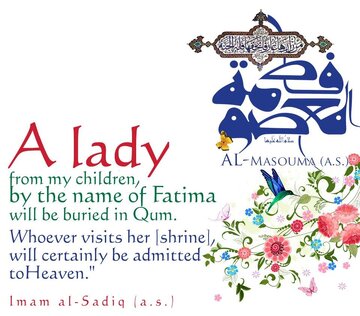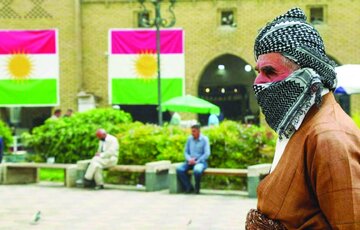AhlulBayt News Agency (ABNA): General Qasem Soleimani, the legendary commander of the elite Quds Force, stands out as one of the few Iranian generals who have not acquired their global reputation posthumously. Born into a modest yet religious family in 1957, General Soleimani led a life of struggle first against day-to-day hardships and then Western-backed aggression. He joined the ranks of the Islamic Revolution Guard Corps and commanded the IRGC units of his home province of Kerman during the Iran-Iraq war of the 1980s. After the war, he continued his struggle against Western imperialism. He took up arms at a tender age and continued to fight until when he became a fallen sexagenarian martyr in 2020.
The first Assassination
Long before his martyrdom at the gates of Baghdad’s airport on January 3, 2020, General Soleimani was a frequently headline-grabbing figure whose oftentimes covert movements in the West Asia region, particularly the Arab states of Syria, Iraq, and Lebanon, were of paramount importance to the Western mainstream media.
This doesn’t mean that General Soleimani was being depicted by Western-dominated world media as the counterterrorism hero that he was.[1] Quite on the contrary, the General had repeatedly been portrayed as a field commander and strategist leading a state-sponsored expansionist project[2] through an array of illegal and inhumane ways such as military operations, bombings, and assassinations.[3]
Ever since the early 2010s, when the West gradually started putting the focus on General Soleimani at the media level, he had been subject to constant demonization efforts. First, Western officials and commentators began talking of the Iranian General as if they had discovered a “shadow commander”[4] who is in charge of advancing a dangerous project.[5]
Right from the start, Westerners spoke about General Soleimani in such terms as “elimination” even when the General was largely walking in the shadow. A case in point is Gen. Stanley McChrystal, who was the head of the U.S. military’s Joint Special Operations Command (JSOC) in 2007. The American General described in a profile on General Soleimani how he spotted him that year. Crediting himself with fighting terrorism, McChrystal said when he watched General Soleimani “slipping away into the darkness” in Erbil on a January night of 2007, he was doubtful about targeting the convoy of General Soleimani due to “the contentious politics that would follow.”[6]
McChrystal’s qualms aside, why would an American general stationed in Iraq decide to “eliminate” a military commander of another country in the first place? The answer to this question is key to understanding the real reasons behind the U.S. decision to assassinate General Soleimani even when there were no upheavals in such countries as Syria, Yemen, and Libya to name a few.
In the 2010s, the West’s smear campaign against General Soleimani would largely rest on allegations ranging from interference in the internal affairs of some Arab states[7] and fomenting sectarian wars[8] to supporting terrorism and stoking proxy wars.[9]
When the Daesh terrorist group overran large swathes of Iraq in 2014, General Soleimani stepped up to the plate, rushing to the aid of an Iraqi government feeling abandoned by almost all its partners including the U.S. This fact has been attested and clearly expressed by Iraqi officials of the time.[10] General Soleimani was at the forefront of Iran’s efforts to help Iraq trounce Daesh.
But this didn’t dissuade the West from continuing their demonization of General Soleimani simply because the whole drama wasn’t about Iraq or fighting terrorist groups such as Daesh. Instead, it was about advancing imperial interests in a world constantly dubbed as the Third World in the occidental mindset. And General Soleimani stood in their way.
The Western media continued to taint the reputation of General Soleimani in places where he used to enjoy widespread popularity. For instance, a little more than two months before his martyrdom, The New York Times published a lengthy report about Iran’s alleged efforts to infiltrate the Iraqi intelligence community.[11] And again, General Soleimani was mentioned in negative terms.
Throughout the 2010s and up until General Soleimani’s assassination, the Western mainstream media carried out a concerted effort to smear the reputation of General Soleimani through character assassination.
The second assassination
Vicious libels and slanders against General Soleimani continued unabated even after the Iranian General was assassinated in a drone strike ordered by former U.S. President, Donald Trump.
The Baghdad strike was in part a result of the West’s nonstop dissemination of lies and misinformation about General Soleimani who was aggressively portrayed as a “villain” of whom the world should get rid as soon as possible. The Western media further reinforced this narrative after he was assassinated.[12]
In addition to tarnishing the image of General Soleimani, the West launched an aggressive censorship campaign on social media platforms, effectively banning any expression of sympathy toward the assassinated General. Social media giants such as Facebook and Instagram actively blocked any outpouring of emotions on the martyrdom of General Soleimani.
Of note, the assassination of General Soleimani shocked and deeply saddened millions of people in Iran and the broader region. This sorrow was translated into hashtags and trends on social media. Millions of people shared photos and videos as well as heartfelt words for General Soleimani only to be disappointed by social media companies deleting their posts and, in many cases, blocking their accounts.
Despite the many complaints of Iranian users, these companies continue to censor content related to General Soleimani, which raises questions on why they so aggressively counter sympathy toward a General who is no longer operating on the ground.
One reason, many believe, is that General Soleiman is still alive in the heart of millions of people around the world who, despite Western propaganda and disinformation, still harbor love for him. Another is that the West seeks to prevent General Soleimani, and maybe future people like him, from turning into an inspiring hero that invokes resistance against foreign powers. This is particularly dangerous for a West seeking to secure its interests at the expense of the people of the West Asia region. By demonizing popular people like General Soleimani, the West also sought to justify its military presence and war-mongering policies in the region. At the end of the day, General Soleimani was a bulwark against Western adventurism in many places.
[1] https://twitter.com/ClareDalyMEP/status/1477993810890313730
[2] https://iranprimer.usip.org/blog/2019/oct/14/soleimani-mastermind-iran%E2%80%99s-expansion
[3] Ibid.
[4] https://www.newyorker.com/magazine/2013/09/30/the-shadow-commander
[5] https://foreignpolicy.com/gt-essay/irans-deadly-puppet-master-qassem-suleimani/
[6] Ibid.
[7] https://apnews.com/article/middle-east-qassim-soleimani-ap-top-news-tehran-international-news-62642940e3fe4b1b87323decc9487fea
[8] https://www.mei.edu/publications/suleimanis-role-iraq-raises-fear-sectarianism-after-islamic-states-ouster-mosul
[9] https://www.csis.org/war-by-proxy
[10] “Portraying the Truth Upside Down.” Khamenei.ir. 14 Jan. 2021, (3:45). english.khamenei.ir/news/8586/Portraying-the-truth-upside-down.
[11] https://www.nytimes.com/interactive/2019/11/18/world/middleeast/iran-iraq-spy-cables.html
[12] https://www.theatlantic.com/politics/archive/2020/01/why-kill-soleimani-now/604441/
/129
22 January 2022 - 07:51
News ID: 1221179

General Qasem Soleimani, the legendary commander of the elite Quds Force, stands out as one of the few Iranian generals who have not acquired their global reputation posthumously.




